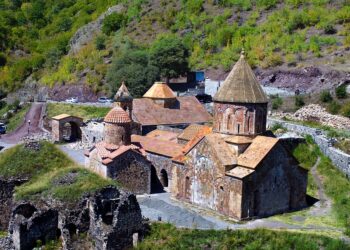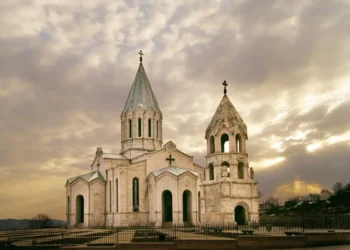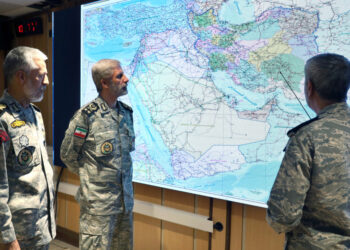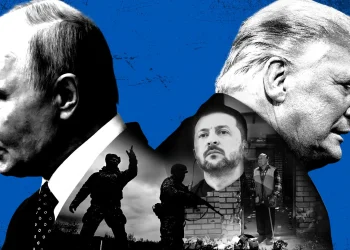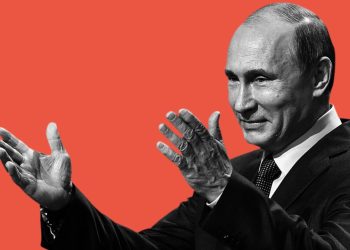MOSCOW (Realist English). One of the fundamental principles of the Russian civilization has always been colonization, the constant expansion of frontiers. Dating back to the IXth and Xth centuries, this process went on until the beginning of the twentieth century and resulted in the creation of a huge Russian state, unique in its size, in natural and geographical factors of the territory. This process of expanding frontiers, combined with the nature of the space and its climate, has largely shaped the national mentality.
It was the territorial, geographical, factor that often lay at the heart of the political, social, and cultural processes that took place in Russia. Colonization of lands was the one most important provision for maintaining the necessary standard of living. The vast territories were a necessary condition for maintaining social stability.
The Old Believers moved beyond the Urals and further to Alaska, not willing to be the object of persecution by the authorities. The peasants who did not want to submit to serfdom went to Siberia (there was no serfdom there). Others who were dissatisfied, fled to the Don River and formed the Cossack estate.
A huge role in this process was played by the Church, thanks to which a unique “technology” of peaceful colonization of vast territories was created. This “technology” requires the most careful examination today, in the period of protection of the sovereignty. The combination of ethnic and religious self-identification allowed the Church to turn the regions, which it administered into the most “Russian”, “all-Russian” of all those that are part of Russia today. We are talking primarily about the “Russian North”.
The territory and national self-awareness in Russia are closely connected with each other. This connection has always been maintained in a variety of cultural and traditional forms, ranging from a complex of semi-pagan rituals, such as “confession to the earth” and ending with a centuries-old tradition of pilgrimage. The latter has encompassed almost all strata of society and has become a very interesting form of cognition of one’s own country through a constant journey from temple to temple, from city to monastery, which can be seen in a whole layer of literary monuments of “Walkings” and legends associated with “crossing calics”, blind wanderers who performed songs.
In conclusion, it should be remembered that Georg Hegel divided colonization into two types. The first is the creation of a new homeland and the second is the conquest for the purpose of exploitation, when the territory is captured, but not mastered. Russia has always been characterized by colonization of the first type. The annexation of new lands to Russia has taken place mostly peacefully, and the entry of their indigenous population into the Russian state was voluntary. Absolutely impossible in the Russian colonization practice were such phenomena, characteristic of the Western European colonization of North and South America or Australia, as the extermination of aborigines for the sake of accommodation of colonizers on their territories.
While developing a “new” territory, the Russians, on the contrary, were ordered to settle “only on separate (that is, empty) land”. The newcomers quickly mastered the language and customs of the aborigines, and the taxes of the indigenous population and newcomers were almost the same – everyone was equal before the state. P. Bucinsky rightly noted the amazing ability of Russians to “get along peacefully with any nationality.”
The sources dating back to XVIth and XVIIth centuries speak of “friend’s houses where they eat at the same table and make family connections”. It is noteworthy that children from mixed marriages, which were concluded during the colonization were never considered “second-rate” – unlike mulattoes and mestizos in Western European countries. A typical example is that the absolute majority of the peoples who found themselves in Russia in the XVIIIth and XIXth centuries, significantly increased their numbers.
Boris Yakemenko is Deputy Director of the Center for Historical Expertise at the RUDN University (Peoples’ Friendship University of Russia).




